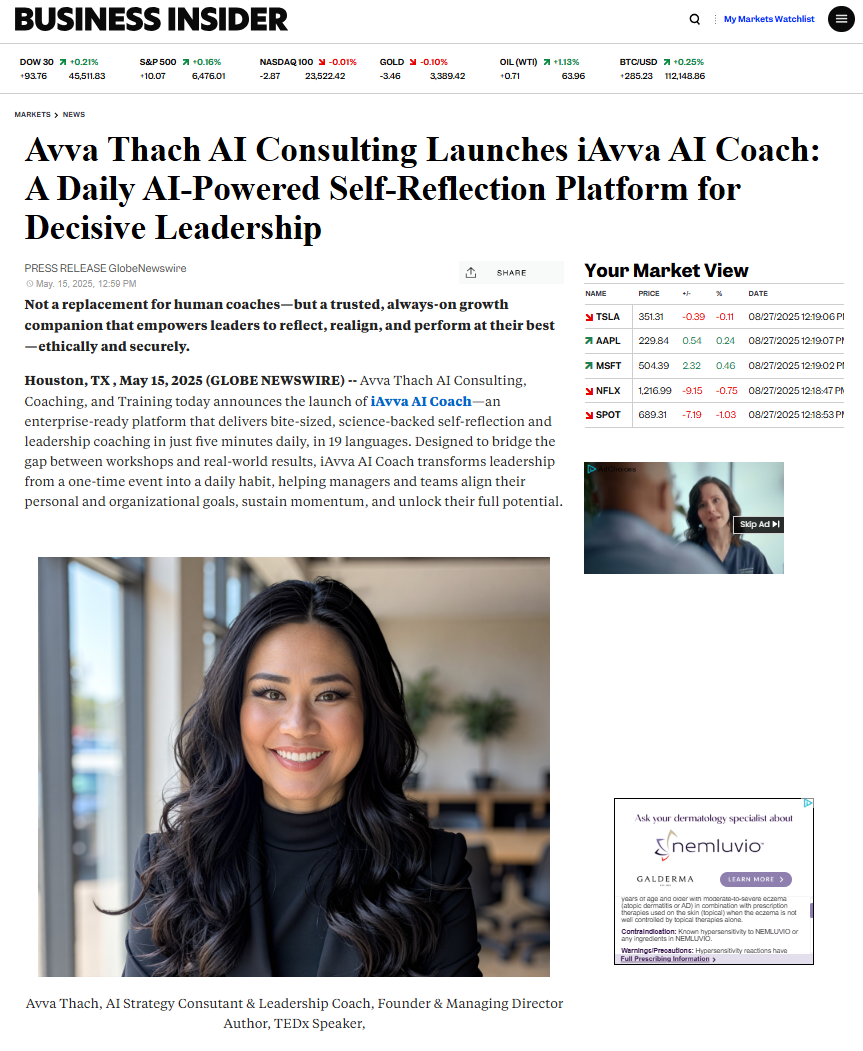Transform Your Leadership: Key Development Strategies for Modern Executives
Introduction
Welcome to the exciting world of leadership development coaching, where the magic happens for modern executives! If you’re a leader navigating through the complexities of today’s business landscape, you’re probably aware that traditional management techniques just won’t cut it anymore. The stakes are higher, the pace is faster, and the challenges are more intricate than ever.
In this blog post, we’re diving deep into key development strategies that can transform your leadership style from “meh” to “magnificent.” Think of this as your personal roadmap to becoming not just a manager but a transformational leader who inspires and drives change.
Gone are the days when leadership was merely about giving orders and expecting compliance. Today, effective leadership is about fostering an environment where innovation thrives, emotional intelligence reigns supreme, and team collaboration is at its peak. Whether you’re interested in executive coaching or looking for tailored programs that enhance your leadership skills, we’ve got you covered!
So grab your favorite beverage (coffee or something stronger), sit back, and let’s explore how you can elevate your leadership game with proven strategies. Because remember: in a world that’s constantly changing, staying ahead means investing in yourself and your team through robust leadership training, effective coaching for leaders, and continuous personal development.

Understanding Leadership Development Coaching
Leadership development coaching is like a personalized GPS for executives navigating the complex terrain of management. Think of it as the secret sauce that transforms good leaders into great ones, enhancing their leadership skills and equipping them to tackle organizational challenges effectively.
This coaching approach goes beyond traditional leadership training. It focuses on individualized growth and strategic leadership development tailored to each leader’s unique needs. Whether it’s through one-on-one sessions or group coaching for leaders, the goal is to foster a deeper understanding of personal strengths and areas for improvement.
The Core Elements of Leadership Development Coaching
- Self-Awareness: Coaches help leaders gain insight into their emotional intelligence, enhancing their ability to connect with team members on a human level.
- Skill Enhancement: This includes everything from communication skills enhancement for leaders to soft skills training that fosters resilience and adaptability.
- Strategic Thinking: Leaders learn to develop effective leadership strategies that align with organizational goals and drive business success.
- Accountability: Regular check-ins ensure that progress is made, providing leaders with the support they need to stay on track.
The beauty of leadership development coaching lies in its flexibility. Programs can be customized based on the specific challenges facing an organization, whether it’s integrating AI strategies or improving team dynamics through executive team-building workshops. This level of personalization ensures that leaders are not just learning but are also applying new insights in real-time.
A Common Misconception
A prevalent myth about leadership development coaching is that it’s only for underperforming executives. In reality, even high-performing leaders can benefit immensely from this type of coaching. Just like athletes have coaches even when they’re winning executives can always find ways to enhance their performance and lead more effectively.
Takeaway: Embracing leadership development coaching not only fosters personal growth but also cultivates a culture of continuous improvement within organizations. It’s about creating a pipeline of future-ready leaders equipped to handle tomorrow’s challenges today!
The Importance of Executive Coaching
When it comes to leadership development coaching, executive coaching isn’t just a trendy buzzword; it’s a game changer. Imagine having a personal trainer, but instead of sculpting your abs, they’re honing your leadership skills. That’s the magic of executive coaching!
Here are some compelling reasons why investing in this type of coaching is crucial for modern executives:
- Benefits of Personalized Coaching: Tailored coaching sessions focus on individual strengths and weaknesses, leading to targeted growth. This isn’t a one-size-fits-all approach. Think of it as a bespoke suit it fits perfectly and makes you look sharp!
- Impact on Organizational Culture: Strong leaders foster strong cultures. By enhancing leadership skills through executive coaching, you not only improve individual performance but also positively influence team dynamics and organizational culture. A well-coached leader can turn a struggling team into a powerhouse.
- Boosting Emotional Intelligence: Executive coaching often emphasizes emotional intelligence, which is essential for effective leadership. Understanding one’s own emotions and those of others can lead to better decision-making and conflict resolution.
- Enhancing Communication Skills: Clear communication is the backbone of effective leadership. Coaching helps leaders articulate their vision clearly, ensuring that everyone is on the same page no more guessing games!
- Navigating Change Management: In today’s fast-paced business environment, change is constant. Executive coaching equips leaders with strategies to manage transitions smoothly, making them resilient in the face of uncertainty.
Did You Know?
A study found that companies with strong executive coaching programs saw a 70% improvement in employee engagement and satisfaction.
In conclusion, executive coaching is not merely an optional extra; it’s an essential investment in your leadership journey. The skills and insights gained through this process can lead to profound changes in both personal development and organizational success. So why not take that leap? Your team (and your career) will thank you!

Effective Leadership Strategies for Modern Executives
In the ever-evolving landscape of business, modern executives need to be more than just decision-makers; they must be transformational leaders. This requires a blend of effective leadership strategies that not only enhance leadership development coaching but also foster an environment where innovation can thrive.
Adapting to Change in the Business Landscape
The ability to pivot quickly in response to market changes is a hallmark of successful leadership. Executives should embrace change management training for leaders, which equips them with the tools to navigate uncertainty with confidence. Here are some key strategies:
- Stay Informed: Regularly update your knowledge about industry trends and emerging technologies. This will help you anticipate changes rather than react to them.
- Encourage Flexibility: Foster a culture where team members feel empowered to adapt their roles and responsibilities as needed.
- Utilize Data Analytics: Make data-driven decisions that reflect current market conditions and customer preferences.
Utilizing Emotional Intelligence in Leadership
Emotional intelligence (EI) is no longer just a buzzword; it’s a critical skill for leaders looking to connect with their teams on a deeper level. By enhancing your EI, you can improve communication, increase team morale, and drive performance. Here’s how:
- Practice Active Listening: Show genuine interest in your team’s ideas and concerns, creating an open dialogue that fosters trust.
- Acknowledge Emotions: Recognize your own emotions and those of others, using this awareness to guide your interactions.
- Promote Empathy: Encourage understanding among team members by sharing experiences and perspectives.
Did You Know? Leaders with high emotional intelligence are 60% more likely to be perceived as effective by their teams, according to recent studies!
The Power of Team Leadership Coaching
A strong leader knows that they are only as good as their team. Implementing effective team leadership coaching can significantly enhance collaboration and productivity. Consider these approaches:
- Create Group Coaching Opportunities: Facilitate sessions where teams can learn from each other’s experiences and challenges.
- Focus on Strengths: Use strengths-based coaching to help team members leverage their unique skills for collective success.
- Cultivate Resilience: Develop resilience-building strategies that prepare teams for setbacks and challenges.
Avoiding Common Misconceptions
A common misconception about leadership development is that it’s solely about acquiring hard skills or technical knowledge. In reality, it encompasses a broad spectrum of competencies including soft skills training for leaders. Remember, the best leaders are those who can inspire and connect with their teams beyond just tasks and objectives!
The takeaway? Embrace these effective leadership strategies through targeted coaching programs like executive leadership programs or customized leadership training tailored specifically for your organization’s needs. By doing so, you not only enhance your own leadership skills but also pave the way for organizational success in today’s dynamic business environment!
Key Components of Leadership Training Programs
When it comes to leadership development coaching, not all programs are created equal. The most effective ones incorporate several key components that ensure leaders not only learn but also apply their newfound skills in real-world scenarios. Let’s break down these essential elements.
Customized Leadership Training Approaches
One size fits all? Not in leadership training! Customized leadership training approaches are vital for addressing the unique challenges faced by different organizations and individuals. Tailoring programs to meet specific needs enhances engagement and retention of information.
Soft Skills Training for Leaders
Soft skills are the unsung heroes of effective leadership. Think of them as the secret sauce that turns a good leader into a great one. Training should focus on:
- Communication Skills Enhancement: Leaders must articulate their vision clearly.
- Emotional Intelligence in Leadership: Understanding team dynamics and individual motivations can lead to better outcomes.
- Conflict Resolution Training for Managers: Equipping leaders with strategies to handle disputes can foster a more harmonious workplace.
Team Leadership Coaching
A great leader is only as good as their team. Team leadership coaching emphasizes collaboration and synergy among team members, ensuring everyone is aligned toward common goals. This component often includes:
- Executive Team Building Workshops: These workshops focus on strengthening relationships within the team, enhancing trust and communication.
- Cross-Cultural Leadership Training Programs: In our globalized world, understanding diverse perspectives is crucial for effective teamwork.
Change Management Training for Leaders
The only constant in business is change, right? Preparing leaders to navigate transitions smoothly is essential. This includes equipping them with the tools needed to manage resistance and guide their teams through uncertainty.
Did you know? 75% of companies believe that effective training and coaching are essential for successful digital transformation (PwC).
The Role of Feedback Mechanisms
No program should end without feedback loops! Continuous improvement is key in leadership development coaching. Establishing mechanisms for feedback allows leaders to refine their skills over time, ensuring they stay relevant and effective in their roles.
The Impact of Online Leadership Courses
The rise of online learning has revolutionized how leadership training is delivered. With flexibility at its core, online courses allow leaders to learn at their own pace while still engaging with peers through group coaching sessions or forums.

The combination of these components creates a robust framework for developing effective leaders equipped to tackle today’s challenges head-on. Remember, investing in leadership development coaching isn’t just about enhancing individual skills it’s about fostering a culture of growth that permeates the entire organization.
Your next step? Evaluate your current leadership training programs against these key components and identify areas for enhancement!
Transformational Leadership Coaching Techniques
Transformational leadership coaching is not just about polishing the rough edges of your leadership skills; it’s about reshaping the very foundation of how you lead. Think of it as a makeover show for your executive presence only instead of a new wardrobe, you’re gaining insights that can revolutionize your approach to leadership.
Here are some key techniques that can elevate your leadership development coaching journey:
- Cultivating Resilience in Executives: In today’s fast-paced world, resilience is the secret sauce that keeps leaders standing tall amidst challenges. Techniques such as mindfulness training and stress management workshops help leaders bounce back from setbacks like a rubber band flexible but unbreakable.
- Building an Authentic Leadership Presence: Authenticity isn’t just a buzzword; it’s the bedrock of trust. Leaders who embrace their true selves create environments where team members feel safe to express ideas and concerns. This involves self-reflection exercises and feedback loops that encourage leaders to align their actions with their values.
- Enhancing Emotional Intelligence: Emotional intelligence (EI) is crucial for effective leadership. Coaching techniques focusing on EI help leaders recognize their emotions and those of others, facilitating better communication and conflict resolution. Imagine being able to read the room like a pro; that’s the power of high EI!
- Utilizing Strategic Leadership Development: Transformational coaching often incorporates strategic planning sessions where leaders identify long-term goals and align them with organizational vision. This technique not only clarifies direction but also empowers teams to rally around shared objectives.
- Fostering Collaborative Team Dynamics: Coaching doesn’t stop at individual improvement; it extends to team dynamics as well. Group coaching sessions can enhance collaboration among team members, breaking down silos and encouraging innovative problem-solving approaches.
Key Takeaway:
The right transformational leadership coaching techniques can significantly impact both personal growth and organizational success. By focusing on resilience, authenticity, emotional intelligence, strategic development, and collaboration, leaders can navigate change effectively while inspiring their teams.
The Role of Team Leadership Coaching in Organizational Success
When it comes to organizational success, team leadership coaching is like the secret sauce that makes everything better. Imagine trying to bake a cake without sugar sure, you can do it, but who wants a bland dessert? In the same way, effective team leadership coaching adds flavor to your organization’s culture and performance.
At its core, leadership development coaching focuses on enhancing the skills of leaders at all levels. This isn’t just about personal growth it’s about cultivating a thriving team environment where collaboration and innovation flourish. Here’s how:
1. Building Trust and Communication
Team leadership coaching fosters open communication channels. When leaders are trained to communicate effectively, it creates an atmosphere of trust. Employees feel valued and understood, which is crucial for engagement.
2. Aligning Goals with Organizational Vision
A great coach helps leaders align their team’s goals with the broader objectives of the organization. This alignment ensures everyone is rowing in the same direction like a synchronized swimming team rather than a chaotic splash-fest.
3. Enhancing Conflict Resolution Skills
No one enjoys conflict, but it’s inevitable in any workplace. Team leadership coaching equips leaders with conflict resolution strategies that turn potential disputes into opportunities for growth and understanding.
Key Takeaway: Organizations that invest in team leadership coaching see improved employee morale, enhanced productivity, and reduced turnover rates.
4. Promoting Diversity and Inclusion
A strong leadership coach emphasizes the importance of diversity in teams. By fostering inclusive practices, organizations can harness diverse perspectives that drive innovation and creativity.
5. Fostering Resilience
The business landscape is constantly changing think of it as a rollercoaster ride! Team leadership coaching helps leaders develop resilience so they can navigate these ups and downs with grace while keeping their teams motivated and focused.
6. Measurable Impact on Performance
The International Data Corporation reports that organizations utilizing effective leadership training see productivity boosts of up to 20%.
This isn’t just fluff; it’s backed by data! The right coaching programs lead to tangible improvements in performance metrics across teams.

In conclusion, investing in team leadership coaching is not just an option; it’s a necessity for organizations aiming for long-term success. By developing effective leaders who can inspire their teams, companies not only enhance their organizational culture but also set themselves up for sustainable growth in an ever-evolving marketplace.
Developing High Potential Leaders through Executive Programs
In today’s fast-paced corporate jungle, developing high potential leaders isn’t just a luxury; it’s a necessity. Executive programs are the secret sauce that can turn promising individuals into the next generation of transformational leaders. Think of it as a boot camp for the brain where leadership skills enhancement meets strategic leadership development.
These executive leadership programs focus on key areas that are crucial for modern executives:
- Tailored Learning Experiences: Customized leadership training ensures that each participant addresses their unique challenges and aspirations. This isn’t about one-size-fits-all; it’s more like a bespoke suit tailored to fit perfectly.
- Focused Skill Development: From emotional intelligence in leadership training to effective communication skills enhancement, these programs help hone the soft skills necessary for navigating complex team dynamics.
- Real-World Application: Participants engage in simulations and case studies that mirror real-life scenarios, allowing them to practice change management training for leaders in a safe environment before taking those lessons back to their teams.
The benefits of such executive programs extend beyond individual growth; they ripple through the entire organization. By investing in high potential leadership programs, companies can:
- Create a Culture of Continuous Learning: When leaders prioritize their professional growth coaching, it sets an example and encourages others to follow suit.
- Enhance Team Performance: Well-trained leaders are better equipped to inspire their teams, leading to improved collaboration and productivity.
- Avoid Leadership Gaps: Strategic foresight in talent management strategies for leaders helps organizations prepare for future challenges by nurturing a pipeline of capable executives.
Did You Know?
A study by PwC found that 75% of companies believe effective training and coaching are essential for successful digital transformation. Investing in executive programs is not just beneficial it’s vital!
The Power of Group Coaching
An often-overlooked aspect of executive programs is group coaching for leaders. This collaborative approach allows participants to learn from each other’s experiences while fostering camaraderie. It’s like having a support group, but instead of discussing feelings over coffee, you’re strategizing about how to lead your organization into the future!
Avoiding Common Pitfalls
While developing high potential leaders through executive programs is essential, it’s important to avoid common mistakes such as:
- Lack of Follow-Up: Training shouldn’t end with the program. Continuous support and mentoring ensure that new skills are applied effectively.
- Ignoring Organizational Needs: Tailoring content without aligning it with company goals can lead to wasted resources. Always ensure your program reflects your organization’s strategy.
- Poor Selection Criteria: Not all employees may be ready or suitable for such intense development. Identify those who truly have high potential based on performance metrics and feedback.
The journey doesn’t end when the program concludes; it’s just the beginning! To truly transform your organization’s leadership landscape, consider integrating these insights into your ongoing management development strategies.
The Future of Leadership Development: Trends and Innovations
The landscape of leadership development coaching is evolving faster than a TikTok dance trend! As we look towards 2025 and beyond, several exciting trends and innovations are reshaping how leaders are trained, coached, and developed. Spoiler alert: it’s not just about PowerPoint presentations anymore.
1. Digital Transformation in Coaching
With the rise of remote work, digital tools are becoming essential in leadership training. Virtual platforms for executive coaching allow leaders to connect globally without the hassle of travel. Think of it as a high-tech coffee chat minus the coffee spills!
2. Personalized Learning Experiences
Gone are the days of one-size-fits-all workshops. Today’s leadership programs focus on customized learning paths tailored to individual needs and goals. This approach enhances engagement and effectiveness, making it easier for leaders to acquire critical skills like emotional intelligence and conflict resolution.
3. Integration of AI in Coaching
Artificial Intelligence is not just for analyzing data anymore; it’s also stepping into the realm of leadership development. AI-driven platforms can assess a leader’s strengths and weaknesses, providing tailored feedback that helps refine their skills. Imagine having your own personal coach that never sleeps!
4. Emphasis on Soft Skills Training
In an era where technical skills are vital, soft skills like communication and empathy are taking center stage in leadership training programs. Programs focusing on these areas help leaders navigate complex team dynamics and foster a positive organizational culture.
5. Focus on Resilience Building
The ability to bounce back from setbacks is more crucial than ever in today’s fast-paced business environment. Leadership coaching now includes resilience building as a core component, helping executives develop strategies to manage stress and maintain productivity under pressure.
6. Group Coaching Dynamics
Group coaching for leaders is gaining popularity as it fosters collaboration and shared learning experiences among peers. Leaders can learn from each other’s successes (and failures) in real-time, creating a supportive community that enhances overall growth.
According to research by PwC, 75% of companies believe effective training is essential for successful digital transformation.
Mistakes to Avoid in Leadership Development
- Neglecting Follow-Up: Not providing ongoing support after initial training can lead to skill decay.
- Avoiding Feedback: Ignoring participant feedback limits program effectiveness; always ask for input!
- Lack of Alignment: Ensure that leadership programs align with organizational goals for maximum impact.
The future of leadership development is bright filled with opportunities for growth through innovative practices that cater to modern challenges faced by executives today. By embracing these trends, organizations can cultivate effective leaders who inspire change within their teams.
If you’re ready to step up your game in leadership development coaching, consider exploring tailored programs that fit your unique needs and organizational culture!
Conclusion: Embracing Continuous Learning as a Leader
As we wrap up our exploration of leadership development coaching, it’s clear that the journey of a leader is never truly finished. Think of leadership like a never-ending Netflix series just when you think you’ve seen it all, there’s always a new season (or challenge) waiting around the corner!
In today’s dynamic business environment, leaders must embrace continuous learning as a core principle. This isn’t just about attending the latest online leadership courses or executive team building workshops; it’s about fostering an ongoing commitment to personal growth and adaptation. Here are some key takeaways:
- Invest in Yourself: Engage in executive coaching and participate in tailored programs that focus on enhancing your leadership skills.
- Promote a Learning Culture: Encourage your team to pursue their own paths of development through management development initiatives and soft skills training for leaders.
- Stay Agile: The business landscape is like a fast-paced game of chess; anticipate moves and adapt your strategies through effective leadership strategies.
- Leverage Feedback: Utilize insights from leadership mentoring programs to refine your approach and enhance your executive presence.
Did You Know? According to recent studies, organizations that prioritize continuous learning see 37% higher productivity rates. This highlights the tangible benefits of investing in leadership development coaching!
The path to becoming an effective leader is paved with curiosity, resilience, and adaptability. By embracing continuous learning, you not only enhance your own capabilities but also inspire those around you. Remember, great leaders are not born; they are made often through trial, error, and a whole lot of coaching!
If you’re ready to transform your leadership journey, consider exploring customized leadership training or connecting with professional growth coaching services that align with your goals. After all, the best time to invest in yourself was yesterday; the second best time is now!










Leave a Reply